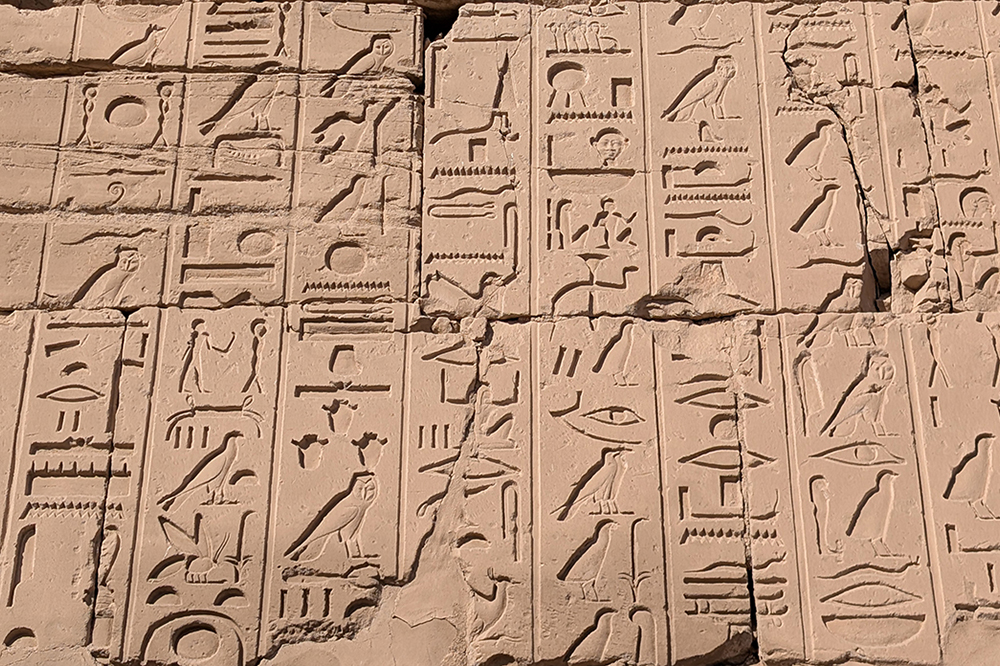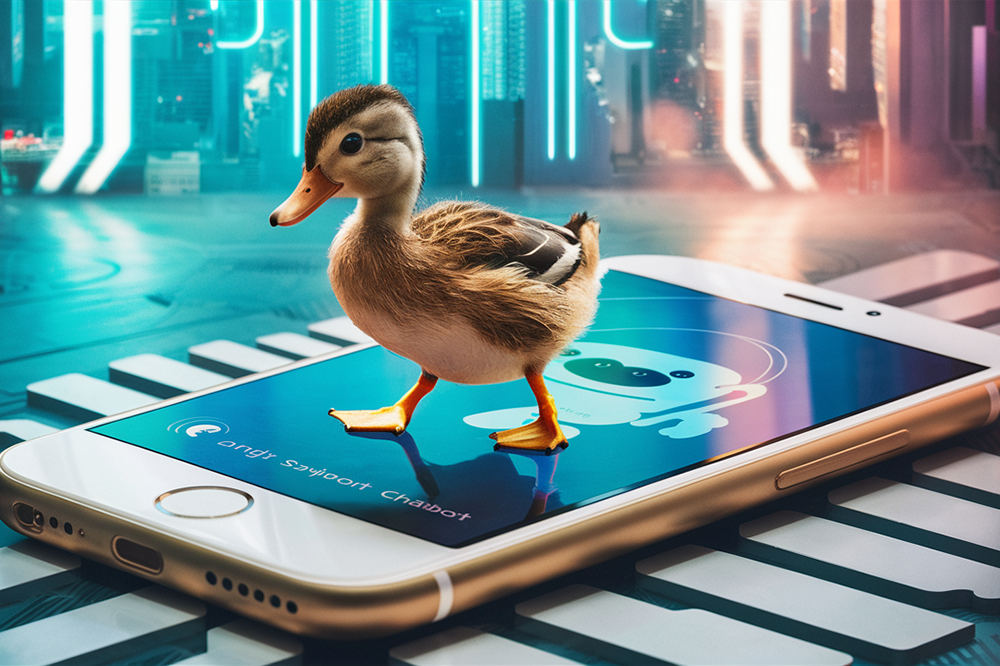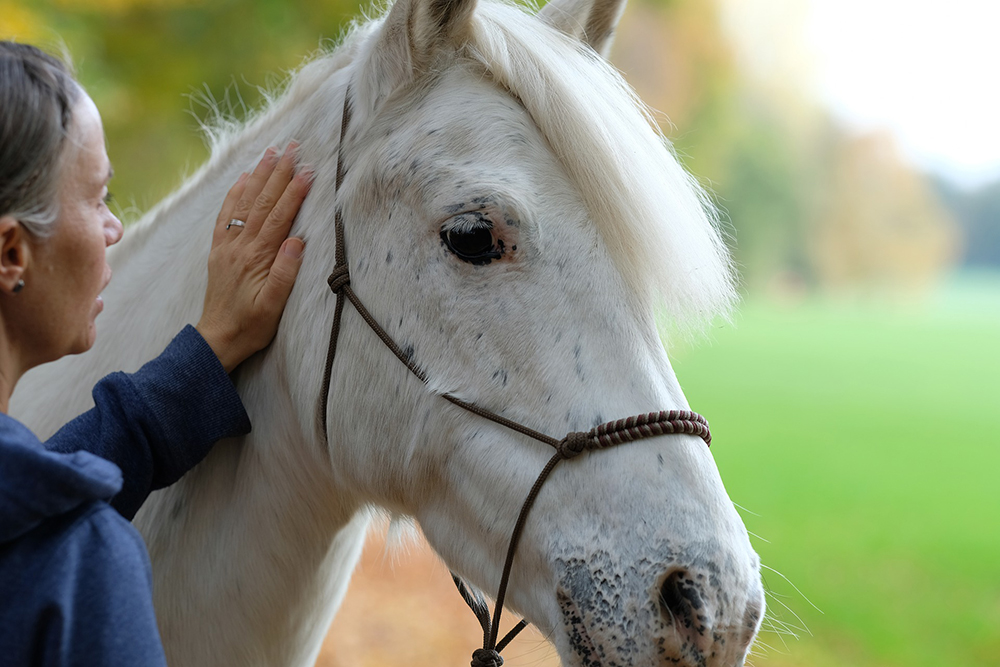The paper “Revisiting the Trolley Problem for AI: Biases and Stereotypes in Large Language Models and their Impact on Ethical Decision-Making” by Sahan Hatemo, Christof Weickhardt, Luca Gisler (FHNW School of Computer Science), and Oliver Bendel (FHNW School of Business) was accepted at the AAAI 2025 Spring Symposium “Human-Compatible AI for Well-being: Harnessing Potential of GenAI for AI-Powered Science”. A year ago, Sahan Hatemo had already dedicated himself to the topic of “ETHICAL DECISION MAKING OF AI: An Investigation Using a Stereotyped Persona Approach in the Trolley Problem” in a so-called mini-challenge in the Data Science degree program. His supervisor, Oliver Bendel, had told the other scientists about the idea at the AAAI 2025 Spring Symposium “Impact of GenAI on Social and Individual Well-being” at Stanford University. This led to a lively discussion. The student recruited two colleagues, Christof Weickhardt and Luca Gisler, and worked on the topic in a much more complex form in a so-called Challenge X. This time, three different open-source language models were applied to the trolley problem. In each case, personalities were created with nationality, gender, and age. In addition, the data was compared with that of the MIT Moral Machine project. Sahan Hatemo, Christof Weickhardt, and Luca Gisler will present their results at the end of March or beginning of April 2025 in San Francisco, the venue of this year’s event.
kAIxo says “kaixo”
The final presentation of the “kAIxo” project took place on January 9, 2025. Nicolas Lluis Araya was the project team member. The FHNW School of Business has been developing chatbots for dead, endangered, and extinct languages for several years. A well-known example is @llegra, a chatbot for Vallader. In the spring of 2024, Oliver Bendel tested the reach of GPTs for endangered languages such as Irish (Irish Gaelic), Maori, and Basque. According to ChatGPT, there is a relatively large amount of training material for them. On May 12, 2024 – after Irish Girl and Maori Girl – a first version of Adelina, a chatbot for Basque, was created. It was later improved in a second version. As part of the “kAIxo” project (the Basque “kaixo” corresponds to the English “hello”), the chatbot kAIxo was built, which speaks Basque. Its purpose is to keep users practicing written or spoken language or to develop the desire to learn the endangered language. The chatbot is based on GPT-4o and Gemini 1.5 Flash, and the user can select his or her preferred large language model (LLM). Retrieval-augmented Generation (RAG) plays a central role. The ChatSubs dataset is used, which contains subtitles of movie dialogs in Basque. Thanks to a text-to-speech engine, the chatbot can also speak. At the final presentation, Nicolas Lluis Araya presented a working prototype that can be accessed via www.kaixo.ch.
Cleop@tr@ Visits the Karnak Temple
Cleop@tr@ was invented by Prof. Dr. Oliver Bendel in May 2024. It is a GPT that specializes in Egyptian. It is also familiar with the culture and history of ancient Egypt. Since 2012, the technology philosopher and information systems specialist has been building chatbots and voice assistants – partly with his students and partly on his own. These have been discussed by the media and found interesting by NASA. Under his supervision, Karim N’diaye developed the chatbot @ve for Latin, Dalil Jabou the voice-enhanced chatbot @llegra for Vallader, and Nicolas Lluis Araya the voice-enhanced chatbot kAIxo for Basque. For some time now, he has been testing the reach of GPTs for endangered languages such as Irish, Maori, and Basque. He is also investigating the potential for extinct languages such as Egyptian (Cleop@tr@) and Akkadian (H@mmur@pi). The GPTs do not readily communicate in hieroglyphics and cuneiform, but they can certainly represent and explain signs of visual languages. It is even possible to enter entire sentences and then ask how they can be improved or what they mean. In December 2024, Oliver Bendel tested his Cleop@tr@ in the Karnak Temple in Luxor. She was able to provide coherent explanations and translations for several inscriptions on columns and walls. However, further tests also revealed clear errors. Ultimately, Egyptologists will have to assess how reliable it is.
Start of the kAIxo Project
Chatbots for dead, endangered, and extinct languages are being developed at the FHNW School of Business. One well-known example is @llegra, a chatbot for Vallader. Oliver Bendel recently tested the reach of GPTs for endangered languages such as Irish (Irish Gaelic), Maori, and Basque. According to ChatGPT, there is a relatively large amount of training material for them. On May 12, 2024 – after Irish Girl and Maori Girl – a first version of Adelina, a chatbot for Basque, was created. It was later improved in a second version. As part of the kAIxo project (the Basque “kaixo” corresponds to the english “hello”), the chatbot or voice assistant kAIxo is to be developed that speaks Basque. The purpose is to keep users practicing written or spoken language or to develop the desire to learn the endangered language. The chatbot should be based on a Large Language Model (LLM). Both prompt engineering and fine-tuning are conceivable for customization. Retrieval Augmented Generation (RAG) can play a central role. The result will be a functioning prototype. Nicolas Lluis Araya, a student of business informatics, has been recruited to implement the project. The kick-off meeting will take place on September 3, 2024.
Cow Whisperer, Horse Whisperer, and Dog Whisperer
On August 5, 2024, the final presentation for the project “The Animal Whisperer” took place at the FHNW School of Business. It was initiated by Prof. Dr. Oliver Bendel, who has been working on animal-computer interaction and animal-machine interaction for many years. Nick Zbinden, a budding business informatics specialist, was recruited as a project collaborator. From March 2024, he developed three applications based on GPT-4o, the Cow Whisperer, the Horse Whisperer and the Dog Whisperer. They can be used to analyze the body language, behaviour, and environment of cows, horses and dogs. The aim is to avert danger to humans and animals. For example, a hiker can receive a recommendation on their smartphone not to cross a pasture if a mother cow and her calves are present. All they have to do is call up the application and take photos of the surroundings. The three apps are now available as prototypes. With the help of prompt engineering, they have been given extensive knowledge and skills. Above all, self-created and labeled photos were used. In the majority of cases, the apps correctly describe the animals’ body language and behavior. Their recommendations for human behavior are also adequate. The project team summarized the results in a paper and submitted it to an international conference (Image: Ideogram).
An AI-generated Teen Collection
Spanish fashion chain Mango has launched an advertising campaign created using AI models. First, all the clothes were photographed, then an AI model was trained to place the images on artificially generated models. The images were then retouched and edited. This was reported by Golem in an article dated July 30, 2024. Digital models are not new. They have been used for decades in various contexts, from computer games to mobile phone applications. Cameron-James Wilson founded an agency for digital models in London in 2019. He is the creator of the digital supermodel Shudu. Her sisters are Noonoouri and Lil Miquela. Since the triumph of generative AI, models have moved into another league. There are now beauty pageants for AI-generated models. The winners of Miss AI 2024 are Kenza Layli (Morocco), Lalina (France), and Olivia C (Portugal). They are already successfully represented on Instagram, showing themselves in various poses and dresses. According to Golem, Mango plans to sell the advertised collection in 95 countries. With this step, the company aims to reduce the costs that would otherwise be incurred for photographers, models and the entire production process (Image: DALL-E 3).
Miss AI 2024
According to the organizers, the World AI Creator Awards (WAICA) is a first-of-its-kind global awards program dedicated to recognizing the achievements of AI creators around the world. The first installment of the WAICAs was Miss AI – where traditional beauty pageants intersected with the world of AI creators. Contestants were judged on their beauty, technical implementation, and social impact. The winners of Miss AI 2024 are Kenza Layli (Morocco), Lalina (France), and Olivia C (Portugal). They are already successful on Instagram, showing themselves in different poses and clothes. The beauty pageant attracts worldwide attention, but is also criticized. One statement is that women are being turned into objects, no different from the classical variants. Another observation is that the first place could strengthen religious conservatism – because Kenza Layli is an artificial woman who covers her virtual hair with a digital hijab (Image: Ideogram).
DuckDuckGo AI Chat
“DuckDuckGo AI Chat is an anonymous way to access popular AI chatbots – currently, Open AI’s GPT 3.5 Turbo, Anthropic’s Claude 3 Haiku, and two open-source models (Meta Llama 3 and Mistral’s Mixtral 8x7B), with more to come. This optional feature is free to use within a daily limit, and can easily be switched off.” (DuckDuckGo, 6 June 2024) This was reported by the DuckDuckGo blog on June 6, 2024. Initial tests have shown that the responses come at high speed. This is an excellent way of testing and comparing different language models one after the other. All this is possible with a high level of data protection: “Chats are private, anonymized by us, and are not used for any AI model training.” (DuckDuckGo, 6 June 2024) It would be desirable for this service to be offered free of charge and without limitation. But that is still a long way off: DuckDuckGo is currently exploring the possibility of “a paid plan for access to higher daily usage limits and more advanced models” (DuckDuckGo, 6 June 2024). You can try out the new tool at duck.ai or duckduckgo.com/chat (Image: Ideogram).
The Horse Whisperer and Other Apps
On May 28, 2024, the interim presentation for the project “The Animal Whisperer” took place at the FHNW School of Business. It was initiated by Prof. Dr. Oliver Bendel, who has been working on animal-computer interaction and animal-machine interaction for many years. Nick Zbinden, a future business information systems specialist, was recruited to work on the project. He developed three applications based on GPT-4o, the Cow Whisperer, the Horse Whisperer, and the Dog Whisperer. They can be used to analyze the body language and environment of cows, horses, and dogs. The aim is to avert danger to humans and animals. For example, a hiker can receive a recommendation on their smartphone not to cross a pasture if a mother cow and her calves are present. All they have to do is open the application and take photos of the area. The tests are already very promising. Nick Zbinden is currently talking to three human whisperers, i.e. experts in this field who are particularly good at assessing the body language and behavior of animals and are particularly good at dealing with them. Photos – showing different positions of the ears or heads, for example – are also being described by them and then fed by him into the applications. The final results will be available in August 2024.
Irish Girl Can Speak and Write Irish
Conversational agents have been the subject of Prof. Dr. Oliver Bendel’s research for a quarter of a century. He dedicated his doctoral thesis at the University of St. Gallen from the end of 1999 to the end of 2022 to them – or more precisely to pedagogical agents, which would probably be called virtual learning companions today. He has been a professor at the FHNW School of Business since 2009. From 2012, he mainly developed chatbots and voice assistants in the context of machine ethics, including GOODBOT, LIEBOT, BESTBOT, and SPACE THEA. In 2022, the information systems specialist and philosopher of technology then turned his attention to dead and endangered languages. Under his supervision, Karim N’diaye developed the chatbot @ve for Latin and Dalil Jabou the chatbot @llegra for Vallader, an idiom of Rhaeto-Romanic, enhanced with voice output. He is currently testing the range of GPTs – “customized versions of ChatGPT”, as OpenAI calls them – for endangered languages such as Irish (Irish Gaelic), Maori, and Basque. According to ChatGPT, there is a relatively large amount of training material for them. A first version of Irish Girl was created on May 3, 2024. At first glance, she seems to have a good grasp of the Goidelic language from the Celtic family. You can have the answers translated into English or German. Afterwards, you may have to ask her to switch back to Irish. Irish Girl is available in the GPT Store and will be further improved in the coming weeks.









